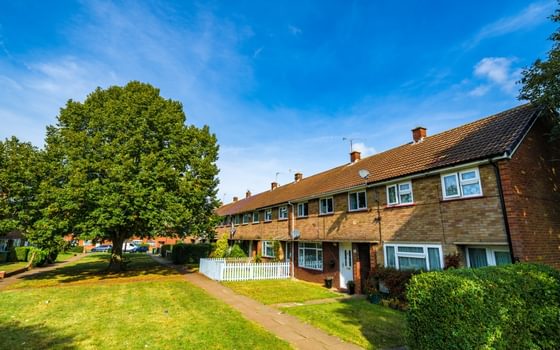Hands on communities
The community and wellbeing bene ts of learning and sharing practical skills
18 November 2014
What role does the learning and sharing of practical skills play in our communities? Evidence shows do-it-yourself (DIY), gardening, and other hands-on activities may significantly boost wellbeing.
They can also help strengthen communities and combat unsustainable throwaway consumerism. This research explores why this is and how organisations seeking to make practical activities a force for good can maximise their impact.
Hands-on skills are making a comeback. From online market places for handmade goods to maker movement clubs and TV programmes focusing on home improvement and gardening, more and more people are being inspired to cook, grow, build, fix, and make. Businesses and charities can and do play an important role in supporting this trend through their own assets, operations, and outreach – and with good result. Learning, sharing, and using practical skills enrich our lives, communities, and the planet in several important ways.
- It boosts wellbeing by making people feel more competent, active, and connected with others.
- Community empowerment is reinforced through sharing and being able to learn from and help each other.
- A make-and-mend culture can help us minimise our resource use in contrast to a throw-away culture leading to over-consumption.
The wellbeing benefits of hands-on activities are striking. Studies suggest that learning gardening and cookery raises self-esteem and a sense of autonomy, and leads to an increase in life satisfaction equivalent to what could be expected if one’s income were to triple.
People who regularly spend time in the garden are more satisfied with life than those who do not, even when controlling for demographic variables like income and education. Similarly, older men and women who do DIY have been found to have higher life satisfaction than those who do not.
Why do hands-on activities make a difference?
Our research suggests that skill learning and sharing strengthens wellbeing and community because it:
- Builds self-esteem and a sense of competence
- Contributes to a sense of control and identity
- Can lead to employment
- Saves money
- Fosters relationships and builds social cohesion
- Drives community empowerment
It’s not just participants who can benefit from these kinds of projects. Staff at businesses running them can also benefit from improved wellbeing thanks to a sense of social value, and the opportunity to interact with people in positive ways. This can create valuable knock-on effects in terms of productivity and staff loyalty.
How can those seeking to encourage practical skill learning as a force for good maximise the impact of their work?
We developed five practical principles for programme designers to take into account.
- Mix it up. Activities based on sharing and learning new skills provide an opportunity for people to meet others whom they might not otherwise meet. The bridging social capital this creates can lead to wider benefits in the community, including greater trust and reduced inter-group tensions.
- Give and take. For people to flourish, they need to feel that they can contribute positively to society. This means giving and sharing their own knowledge, skills, and assets – as well as receiving help from others, in the spirit of co-production. Community organisations and businesses should provide opportunities for this.
- Joy in learning. The extent to which learning is enjoyable has an impact on how effective that learning is. The five ways to wellbeing offer a tool for thinking about how to make learning more fun.
- Relish the challenge. A well-set challenge can be valuable for building self-esteem and confidence. For DIY, the feeling of success from completing a project that requires new skills and presents a challenge is one of the key pathways through which wellbeing is positively impacted.
- From me to we. The challenge is to encourage people participating in skill-learning and skill-sharing programmes to see the skills they learn as assets for the community as a whole, not just for themselves. Practical skills are ideal for this, because they can be used to provide positive impacts in communities.
Topics Wellbeing






